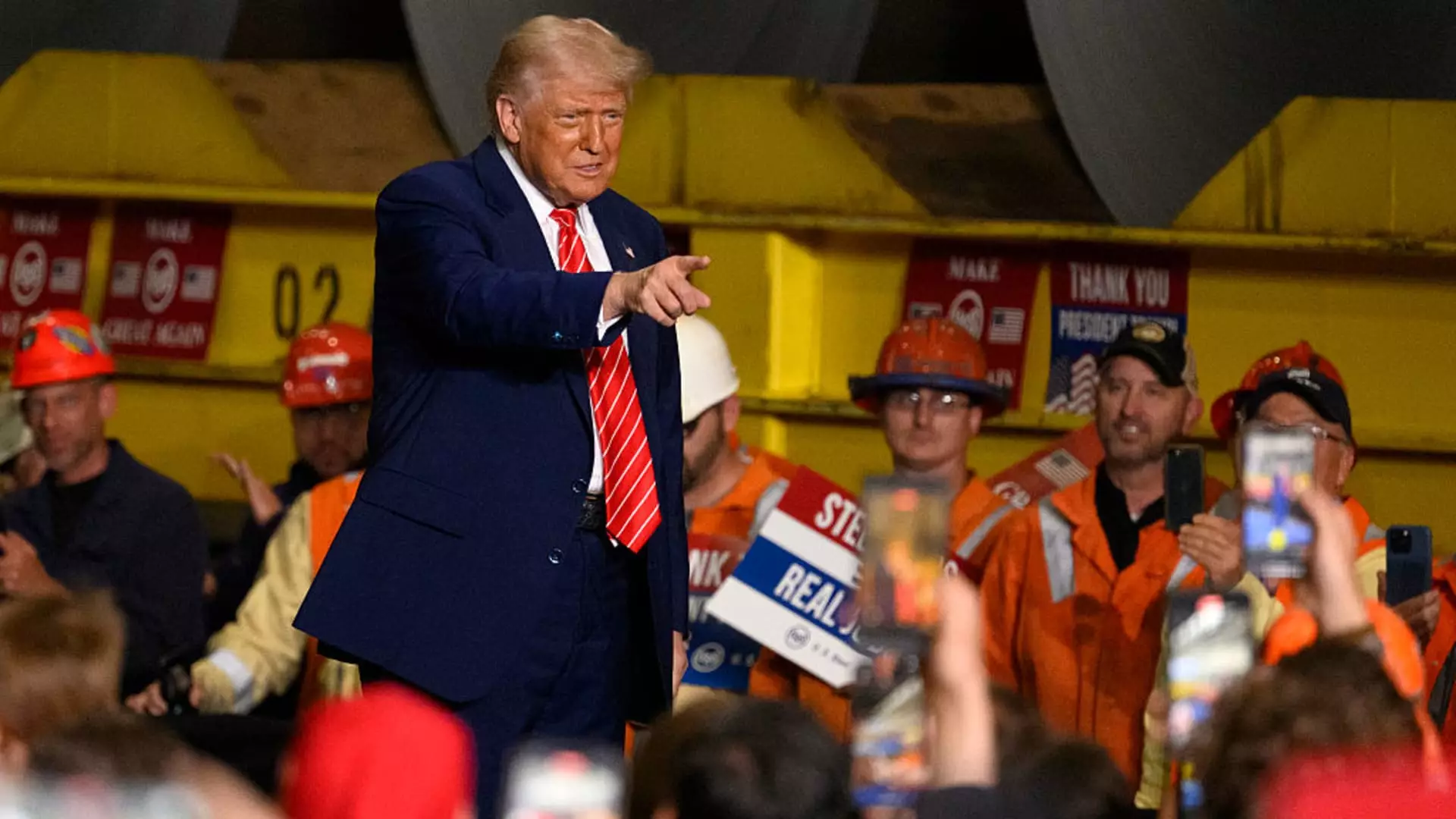In a bold and controversial move, President Donald Trump recently announced a staggering increase in tariffs on steel imports from 25% to 50%. This reckless action reverberates through the global economy, igniting fierce backlash not only from trade allies but also from labor organizations within the U.S. and Canada. The decision uncovers a troubling inconsistency in the President’s economic policies, which often prioritize short-term gains over long-term solutions. By fanning the flames of trade tensions, he jeopardizes many crucial relationships and undermines the delicate balance of global commerce.
A Continuation of Hostility Towards Allies
The European Union has openly criticized this escalated protectionism, claiming Trump’s decision risks derailing ongoing negotiations aimed at easing trade strains. The EU’s statement points toward the growing uncertainty that such tariffs impose on consumers and businesses on both sides of the Atlantic. By pitting nations against each other with financial penalties, Trump not only threatens the fabric of transatlantic cooperation but also sends a signal that America may not be a reliable partner in the global market. This contradictory approach raises questions about his commitment to fostering alliances.
The individuals immediately confronted by this increased burden are the very workers Trump claims to be protecting—the industrial labor force dependent on steel and aluminum. Marty Warren, National Director for United Steelworkers in Canada, expressed profound concern over thousands of jobs being put at risk due to this unilateral decision. Such a move can hardly qualify as a measure that serves the working class, who see their livelihoods perilously balanced on the precipice of political posturing.
Effects on the Broader Economic Landscape
The increased tariffs will not only place pressure on manufacturers reliant on these industrial inputs but will also escalate costs for consumers across the board. From household appliances to automobiles, everyday products are susceptible to price hikes stemming from artificially inflated material costs. In a time when inflation presents real challenges to the average consumer, this kind of disruption serves as a painful reminder of the broader implications of policy decisions that lack foresight.
Moreover, the impact of such tariffs extends far beyond American borders. Canadian industries, which are deeply intertwined with their U.S. counterparts, face immediate ramifications as they grapple with the potential loss of contracts and market share. As these allies reconsider the stability of their trading relationships, the foundation of North American economic cooperation begins to crack. For those of us who advocate for a more interconnected global marketplace, this move feels like a step backwards.
Countermeasures and Legal Challenges
The EU has signaled its willingness to retaliate with countermeasures, further escalating tensions in what may already be construed as a trade war. While Trump touts the narrative that his tariffs will safeguard American jobs, the collateral damage could very well lead to an endless cycle of retaliatory policies. The cyclical nature of trade restrictions breeds instability, not only for the U.S. economy but globally, as other nations respond with their own rounds of tariffs.
Adding another layer of complexity, recent legal challenges against these tariffs reflect yet another obstacle in the Trump administration’s trade strategy. A U.S. Court has raised questions regarding the authority under which these tariffs were imposed, suggesting that an intervention is an imminent possibility. This legal quagmire further suggests a lack of coherent strategy behind the administration’s approach, as impulsive decisions disregard the checks and balances expected in U.S. governance.
A Call for Rational Trade Policies
Amid this burgeoning disaster, there’s a desperate need for liberals and centrist voices alike to advocate for a renewal of rational trade policy—one that prioritizes negotiation, diplomacy, and mutual benefit rather than unilateral restrictions designed for political theater. The path forward must emphasize partnership rather than conflict, recognizing that economic interdependence can yield greater prosperity for all parties involved. In rejecting the current trajectory, we must collectively call for sound economic principles that resonate with the values of fair trade and mutual respect among nations.

